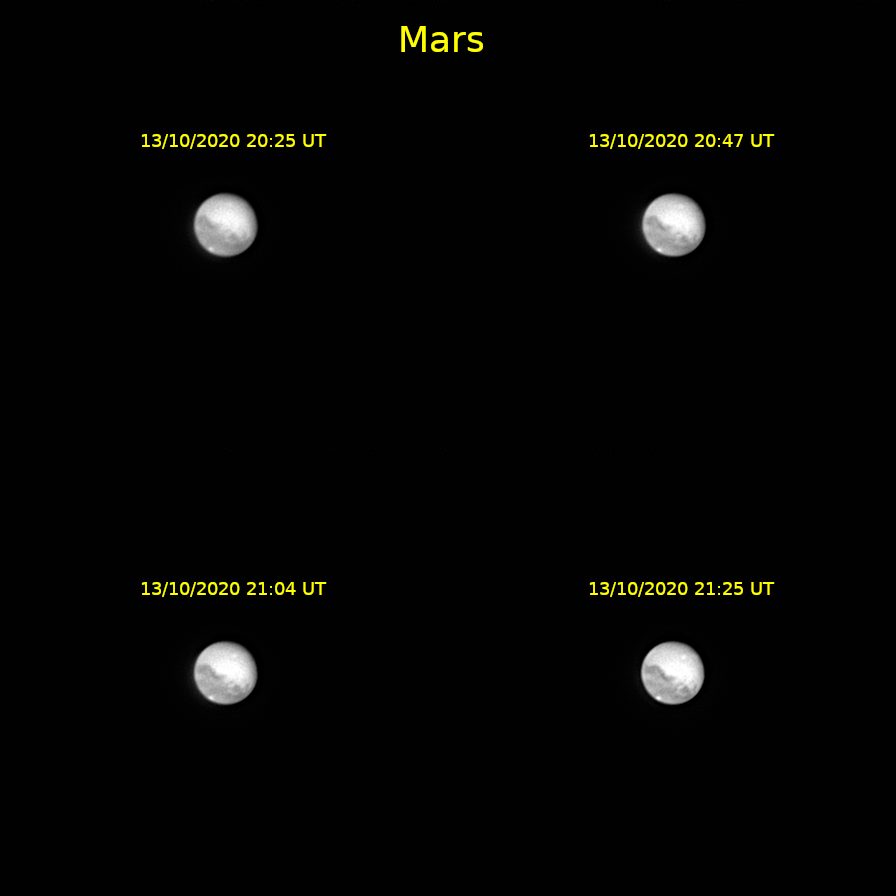-
Bullialdus
Read more: BullialdusIn this photo the most evident formation is the Bullialdus crater with a diameter of 61 km located on the western edge of the Mare Nubium, while on the eastern side of the Mare Nubium near the lower right corner of the photo there is Rupes Recta, a fault with a length of 110 km…

-
The Moon: Plato and Copernucus craters
Read more: The Moon: Plato and Copernucus cratersOn the night of December 26th 2020 I photographed the Moon 12 days after the new moon, then a crescent moon just some days before the full moon phase.

-
The opposition of Mars
Read more: The opposition of MarsA few days before the opposition of Mars, I got these four images between 20:15 UT and 21:25 UT on 13 October 2020.

-
The south pole of the Moon
Read more: The south pole of the MoonThis photo is one of the first photos taken with the new telescope on October 9, 2020 at 22:21 UT.

-
New Astronomy category in this blog
Read more: New Astronomy category in this blogIn the last 4 years I have not used this blog but now I want to resume publishing the photos taken with my new telescope.Astronomy has been a my hobby since I was a child, unfortunately I had to stop for many years and now I would like to start observing the sky again. On…
-
Saving and reading files in the internal storage
Read more: Saving and reading files in the internal storageYou can save and read files in the internal storage as private files which only your app can see except for other apps with root privileges.
-
The class LruCache to manage a cache of bitmap objects
Read more: The class LruCache to manage a cache of bitmap objectsThe intensive use of many images in an app can create difficulties to the responsiveness and to memory, shown by warnings like ANR (Application Not Responding) or errors like OutOfMemoryError.
-
Avoiding too frequent updates to the views
Read more: Avoiding too frequent updates to the viewsIn Android in order to avoid to do too work in the main thread, most of the operations should be carried out in a secondary thread or a class that extends AsyncTask; then the final results are reported in some view to be shown to the user using Activity.runOnUiThread(Runnable) or View.post(Runnable) (see Processes and Threads)…
-
Golden Rolly
Read more: Golden RollyI published an app in Google Play Store named Golden Rolly, it is a game of the category puzzle and you can find a short video presentation here.
